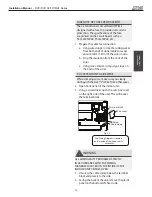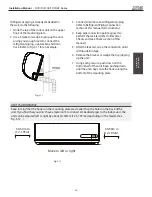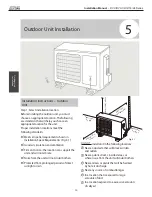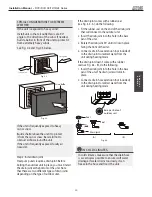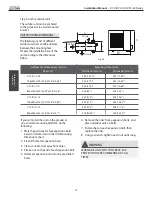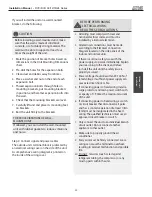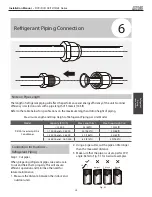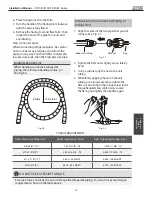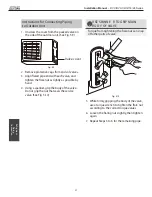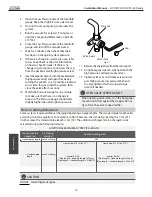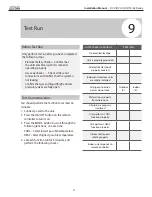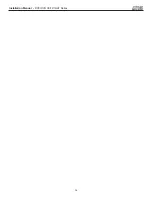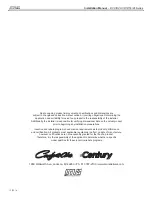
Installation Manual -
DVC/DVH 09/12/18/24 Series
Page 21
SPECIAL CONSIDERATIONS FOR EXTREME
WEATHER
If the unit is exposed to heavy wind:
Install unit so that air outlet fan is at a 90°
angle to the direction of the wind. If needed,
build a barrier in front of the unit to protect it
from extremely heavy winds.
See
Fig. 4.2
and
Fig. 4.3
below
.
Strong wind
Strong wind
Strong wind
If the unit is frequently exposed to heavy
rain or snow:
Build a shelter above the unit it to protect
it from the rain or snow. Be careful not to
obstruct air flow around the unit.
If the unit is frequently exposed to salty air
(seaside):
Step 2: Install drain joint
Heat pump units require a drain joint. Before
bolting the outdoor unit in place, you must install
the drain joint at the bottom of the unit. Note
that there are two different types of drain joints
depending on the type of outdoor unit.
If the drain joint comes with a rubber seal
(see
Fig. 4.4 - A
), do the following:
1.
Fit the rubber seal on the end of the drain joint
that will connect to the outdoor unit.
2.
Insert the drain joint into the hole in the base
pan of the unit.
3.
Rotate the drain joint 90° until it clicks in place
facing the front of the unit.
4.
Connect a drain hose extension (not included)
to the drain joint to redirect water from the
unit during heating mode.
If the drain joint doesn’t come with a rubber
seal
(see
Fig. 4.4 - B
), do the following:
1.
Insert the drain joint into the hole in the base
pan of the unit. The drain joint will click in
place.
2.
Connect a drain hose extension (not included)
to the drain joint to redirect water from the
unit during heating mode.
Seal
Drain joint
(A)
(B)
Base pan hole of
outdoor unit
Seal
IN COLD CLIMATES
In cold climates, make sure that the drain hose
is as vertical as possible to ensure swift water
drainage. If water drains too slowly, it can
freeze in the hose and flood the unit.
Fig. 4.2
Fig. 4.3
Fig. 4.4
Outdoor Unit
Installation
Wind Baffle
20











